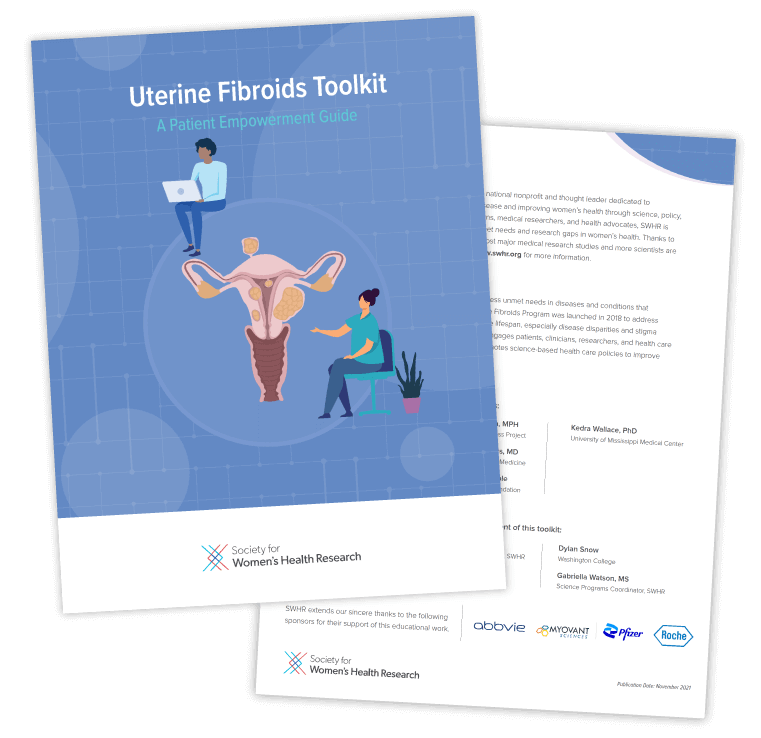Flag Your Uterine Health Conditions
Uterine fibroids

A heavy period?
Recognize the red flags
When your flow is too heavy to be easily managed, it is called heavy bleeding. Heavy menstrual bleeding may be a red flag for a more serious condition.1 Heavy bleeding can impact a person’s physical, emotional, and social well-being.3,4 It can make it difficult to do normal activities,3 leading some women to avoid making plans when their period is due. You shouldn’t have to plan your life around your period. It's time to raise a red flag around heavy periods that don’t feel normal to you. If you’re experiencing some or all of these symptoms, talk to your healthcare provider. Learn more

What does heavy bleeding have to do with ?
Heavy periods can be caused by a condition affecting the , known as uterine fibroids.5 Uterine fibroids, also called leiomyomas, are growths of tissue in and around the uterus. Although they are tumors, uterine fibroids are not cancer.5 Although uterine fibroids can grow without causing symptoms, many women with fibroids will experience symptoms.5 Women with uterine fibroids may have heavy periods or bleed between periods. Fibroids can also cause back pain, bladder problems, and problems getting pregnant.5 The physical symptoms caused by fibroids often negatively impact a person’s life.4

The Fibroid Foundation, a answers some of the most common questions about uterine fibroids on their website.
Understanding
uterine fibroids
Understanding what uterine fibroids are and finding your way through the health system can be overwhelming. The Society for Women’s Health Research, a patient advocacy organization, has put together a toolkit, with support from Sumitomo Pharma, to help you along your journey. Access the Uterine Fibroids Toolkit: A Patient Empowerment Guide.

Who gets uterine fibroids?
Uterine fibroids are quite common; about 7 out of 10 women (70%) will have uterine fibroids by the time they reach .8 Fibroids can occur in anyone of reproductive age, although they most commonly affect women between the ages of 30 and 40.9 While uterine fibroids can affect all women, Black women are three times more likely to be affected than white women,8 and they develop fibroids at an earlier age than white women.9 Black women are more likely to have more severe symptoms than white women and are more likely to have fibroids interfere with daily and social life.10




References
1. Heavy menstrual bleeding. American College of Obstetricians and Gynecologists. Accessed March 2025. https://www.acog.org/womens-health/faqs/heavy-menstrual-bleeding. 2. Menstrual definition. Merriam-Webster. Accessed March 2025.
